- Homepage
- Our green garden
- Five Reasons to Start Beekeeping
Five reasons to start beekeeping
Here are five reasons to start beekeeping for anyone with a secluded garden; you don't want your own family or the neighbours badly stung. The occasional sting is inevitable but that is no reason to fuss.
The first of our five reasons to start beekeeping is simply that in a struggling economy going into world-recession, each and every family needs to be thinking of ways to earn a few extra bucks on the side.
Keeping bees in your own backyard is simply one to consider. The capital outlay is relatively small and the return almost immediate. No expensive equipment is needed if you have three or less hives; quite soon though you will be wanting an extractor and a bottling tank.
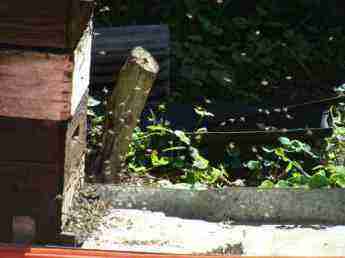
Five reasons to start beekeeping
A hive in the flat costs less than R1,000. All that is needed is a hammer and a pair of pliers; and a few bits and bobs. A free Saturday afternoon when there is no ballgame on is not unimportant too. Catching a colony is not difficult during the swarming season if you know someone living in the Karkloof, Lions River or Currie’s Post areas; in the autumn.
How to prepare the hive, making it attractive to passing swarms, is taught every year at open days by the KZN Bee Farmers’ Association; find them on the web. It is a group of mainly hobbyists eager to earn an extra few bucks from selling honey with a few professionals too who make their living mainly from pollination services.
Numerous beekeepers give short courses for a reasonable fee.
I would recommend spending a little extra and buying hives that have been hot-dipped in Waxol to preserve the wood; painting them is not sufficient and probably more expensive in any case.
Reason 1: Excellent pocket money
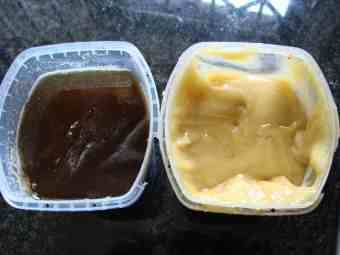
I routinely get 60 to 70 bottles annually of the very best natural honey per hive which retail these days for around R100 each; that’s not too shabby for an investment of one thousand rand.
I have wonderful memories from my childhood of firstly helping to extract the honey from the combs in our home, with many promises to clean up afterwards, not always kept. When we got to ten hives my brother and I were finally thrown out.
“Get outta my kitchen!”
That meant a move to an outside storeroom that had to be adapted. My grandfather gave me my first hive when I was eleven; it’s been the very best of my many hobbies.
Depending on the age of the queen a new colony can be expected to mature within one to two years, giving you an astonishing return. Last year a newly arrived swarm gave me 14 bottles after a few months; that you cannot rely on.
How to rear young queens is one of the many courses taught by local beekeeping associations; it’s central to good management. Once the old lady starts to age she is unable to lay as many eggs and the colony starts to decline; and may eventually die out.
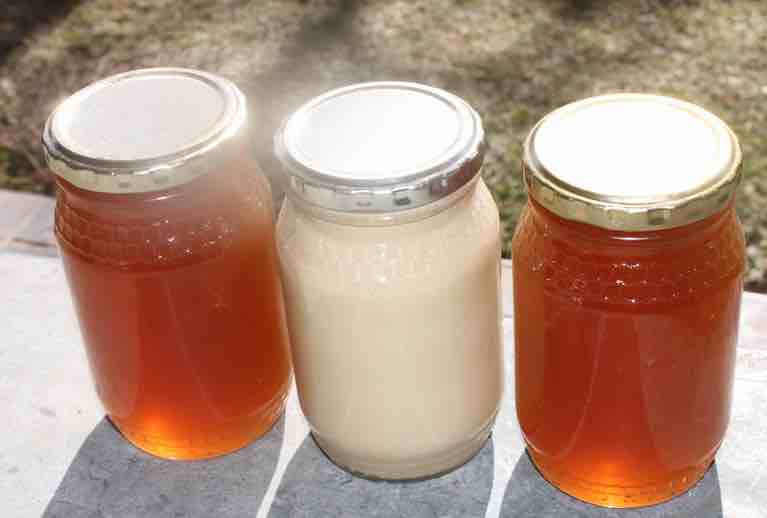
Don’t expect to get this kind of return from your hive in the first year; it may come with an old queen. But already this season I have harvested thirty 500g bottles from a swarm I captured 2y ago with many more to come before December. The jacarandas in Pietermaritzburg and the gums in the Midlands produce superb honey.
For the other four reasons to start beekeeping you will have to come to the Honey Festivals held annually. I am absolutely besotted with my these little insects.
These festivals are fun days for the whole family with many talks, demonstrations and displays of honey; equipment like extractors and hives are to be viewed. Often there will be mead, a fermented wine and plenty of food on sale. All profits go to the associations which foster sustainable beekeeping in your neighbourhood.
Reason 2: Adulterated honey
If you are serious about making a go of keeping bees, I would strongly recommend joining the local association. The African honeybee is a dangerous little beast; the European less so but a sting can still be fatal for some. Learning the fundamentals from the start is vitally important. There is an art and a science to be acquired so do not let me mislead you into believing that it is all plain sailing; it’s not.
South Africa needlessly imports 70% of its honey and much of it is awful; and all is irradiated.
Honey, olive oil and dairy products are the three most adulterated foods in the world; buyer beware. Cocoa is joining the ranks; all are of high value. You could have on your table some of the very best pure, natural honey from your own hives; that’s the second reason to start beekeeping.
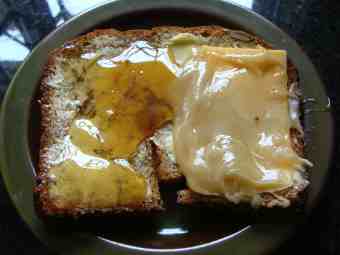
Reason 3: Most raw honeys have a Low GI
One of the most surprising bits of research I have seen in many a year is that natural, unprocessed honey from a local beekeeper has a low GI; it hardly affects your blood glucose. However once the commercial bottlers get hold of it, everything changes[1].
Honey is made up of two simple sugars, glucose and fructose. We should assume it would affect blood glucose quite dramatically; but unprocessed "uju" as the Zulus call it, does not.
Unprocessed "honig" as the German researchers called it, does not affect blood-glucose. In fact is actually lowers the FBG.
Reason 4: Natural honey is rich in pollen and propolis
Unprocessed natural honey from small beekeepers contains large amounts of pollen from literally thousands of different flowers; it has been proven to protect the prostate gland from engorgement[2] and it is also thought to help with hay fever and even asthma.
All of the pollen has been strained out of commercial honey as it provides granules that act as seeds for granulation; the public demands clear, liquid honey, little realising the grave loss from filtering and heating.
Reason 5: Pollination by honey-bees
The real reason for keeping bees actually has little to do with honey. One in three mouthfuls of our food is totally dependent on pollination by our tiny friends; without them we would starve.
Nut trees like almonds and macadamias would produce absolutely nothing if it wasn't for the pollination services of professional beekeepers.
Blueberries would produce zero fruit without honeybees.
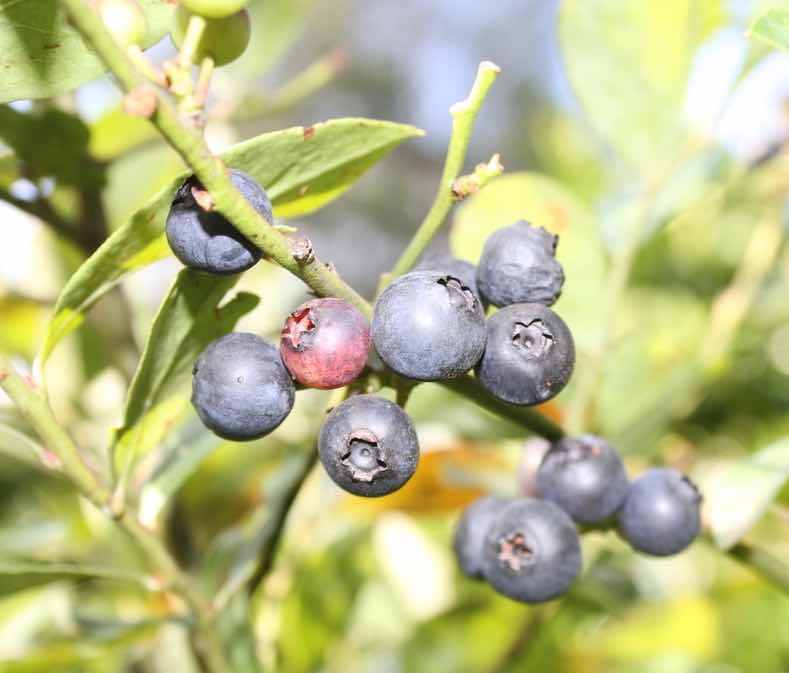
Beekeeping as a profession
Let's add one more to our five reasons to start beekeeping. Professional apiarists work extremely hard during honey flows and when their pollination services are being sought. In between they have quite long periods of rest and relaxation; and time to attend to other interests, another job or go on extended holidays.
Bees are pets that you don't have to feed daily; they provide for you.
A family affair
We live in a world that scares me; I see our children's minds being totally captured by cellphones and social media. No longer do they have any interest in hobbies like sailing, hiking and beekeeping; and a thousand others. They would spend every waking hour if we allowed them with their eyes glued to a screen; and over fifty percent of the web is focused on pornography apparently.
Make a family affair of it; add that to your five reasons to start beekeeping. It's all about the benefits of flowers and insects; and leads on directly to deep matters of the planet. Just possibly we can divert them from the suicidal path both they and Mother Earth are on.
Five reasons to start beekeeping
Five reasons to start beekeeping for the family, Mother Earth and a few extra bob.
When browsing use right click and "Open Link in New Tab" or you may get a bad gateway signal.
The material expressed on this page is gleaned from the nutritional and environmental literature; it is clearly referenced. A plain distinction is made between the author's opinion and that which is scientifically proven. When in doubt consult your health professional.
To suggest a correction or clarification, write to Dr Bernard Preston here. Contact.
Newsletter
Our newsletter is entitled "create a cyan zone" at your home, preserving both yourself and Mother Earth for future generations; and the family too, of course. We promise not to spam you with daily emails promoting various products. You may get an occasional nudge to buy one of my books.
Here are the back issues.
- Lifestyle and ideal body weight
- What are ultra-processed foods?
- Investing in long-term health
- Diseases from plastic exposure
- Intensive lifestyle management for obesity has limited value
- A world largely devoid of Parkinson's Disease
- The impact of friendly bacteria in the tum on the prevention of cancer
- There's a hole in the bucket
- Everyone is talking about weight loss drugs
- Pull the sweet tooth
- If you suffer from heartburn plant a susu
- Refined maize meal and stunting
- Should agriculture and industry get priority for water and electricity?
- Nature is calling
- Mill your own flour
- Bake your own sourdough bread
- Microplastics from our water
- Alternative types of water storage
- Wear your clothes out
- Comfort foods
- Create a bee-friendly environment
- Go to bed slightly hungry
- Keep bees
- Blue zone folk are religious
- Reduce plastic waste
- Family is important
- What can go in compost?
- Grow broad beans for longevity
- Harvest and store sunshine
- Blue zone exercise
- Harvest and store your rainwater
- Create a cyan zone at your home
Did you find this page interesting? How about forwarding it to a friendly book or food junkie? Better still, a social media tick would help.
- Homepage
- Our green garden
- Five Reasons to Start Beekeeping
Address:
56 Groenekloof Rd,
Hilton, KZN
South Africa
Website:
https://www.bernard-preston.com